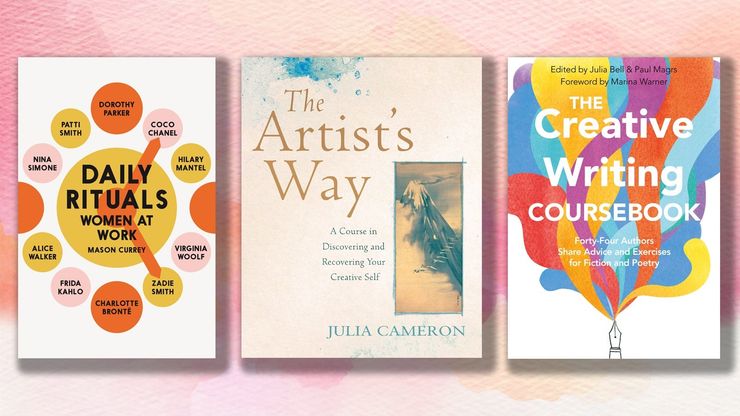Reading for just 6 minutes can slow your heart rate and ease muscle tension
If your New Year’s resolution is to read more, psychology professor Wendy Wood is here to help. Here she explains the benefits of reading and tells us how we can retrain our brains to help us read more books in 2020.

Eat more healthily, quit smoking, learn to budget better; the list of New Year’s resolutions we make (and often break) each year is endless. But what if there was one resolution that could improve your mental health, brain function and your social skills? Well, reading on a regular basis can help you achieve all that and more. But with busy lives and the increasing influence of technology, it can be hard to find time to lose ourselves in a good book. Here, Wendy Wood, psychology professor and author of Good Habits, Bad Habits, explains how the best way to start reading more is to make it a habit and shares her top tips to encourage regular reading.
I am guessing that you don’t read as much as you would like to. The data backs this up: “Read more” is on most top 10 lists of New Year’s resolutions. Meanwhile, reading in England is becoming a casualty of technology, especially social media on the internet, videos, and television.
Why not just give in to this crush of other media? Why do we keep wanting to read more? Part of the answer is obvious: reading is fun, entertaining, and often inspiring. But there are also less obvious benefits. We know that becoming engrossed in a novel improves brain function and enhances neural connectivity. If that sounds like: “reading makes you smarter” you’re not far off. And although reading is a solitary experience, it has social benefits: the experience of being transported into a fictional world increases your empathy and ability to imagine others’ experiences. Stressed? Reading just for 6 minutes can slow your heart rate and ease muscle tension as you escape into a fictional world. We all want to read more not just because it’s the right thing to do, but because it is truly good for us. That’s not even considering the benefits of a good book, giving you something to talk about at your next dinner party.
It’s settled then. This is one New Year’s Resolution worth committing to. But how do you go about carving out time in your busy life to make it happen? Lack of time is the most common reason English adults give for not reading.
The best way to start reading more – and keep reading – is to form a habit. Don’t roll your eyes at how obvious this sounds. And forget what you know about habits. Forget about motivation, keeping records, and setting goals. Despite what you have heard, habits don’t work that way.
Habits do not rely on your willpower or your goals. You can’t form a habit by making a strong decision. Habits rely on repetition.
Essentially, behaviour begets behaviour. Your brain is set up to decrease the cost of each repeated behaviour. Every time you do something that you’ve already done, you are on the way toward doing that thing more easily, more automatically, and more reliably. Read a book once, and you’re making a decision. Do it twice, and you’re still learning. Read 100 times in a similar way, under similar circumstances? You don’t have to think twice about it. You’ve done all the thinking you need to do. The hard work is over. You will automatically pick up a book, your brain blissfully free to focus on whatever unfolding story awaits.
The simplicity of this is undergirded by an elegant mental apparatus that we are only just now really understanding. When you do something that feels good (like reading, for the reasons I shared above), your brain reacts by releasing a neurochemical, dopamine, which forms connections in your mind between the context you are in (your comfy reading couch after work) and what you did (read a chapter of the latest thriller everyone is talking about) to get that pulse-pounding reward. As that connection is reinforced by repetition, it becomes independent from the reward. In your consciousness, this is what happens when you stop doing something because it feels good and you do start to do it simply because that’s what you do. Ultimately, you only have to see your couch when you walk in the door, and you reach for the book.
In that way, habits are literally mental shortcuts. They connect context and behaviour (and do away with reward). They simplify things to the point that we don’t have to really think about them anymore.
So, putting this all together. This is how I, a scientist who studies habits, would get you to read more. First, borrow a tip from the chefs, and prepare your mise-en-place. Put everything in its place. Prep things by placing your book right where you’ll be reading it, whether it’s next to the couch or next to your bed.
Second, make other things more difficult. Add friction to other behaviours (like browsing Twitter). This could be as simple as removing your phone from your pocket and leaving it in the kitchen or putting the TV remote in a drawer. You might think that these are too simple to have much effect. But distance is a powerful source of friction.
Next, stack habits. Habits form faster when they hitch onto other habits and take advantage of the automaticity that propels them. If you already habitually look at your phone when you’re bored, download an ebook and make that the first app to pop up.
Lastly, evaluate. Don’t force yourself to finish a book you don’t like. My own house rule is to stick with a book for 50 pages and quit if I’m not captivated by then. An audit like this is good especially when you’re trying to form a reading habit. Eventually, your habit will persist despite that less-than-rewarding book, but at the beginning, go with what gives you pleasure!
These simple strategies should help you to cultivate a better and more consistent reading habit, one that persistently delivers the pleasure of reading a good book.
Good Habits, Bad Habits
by Wendy Wood
In this accessible and highly practical book, Professor Wendy Wood shows you how to harness the extraordinary power of your unconscious mind to achieve your goals. She draws on three decades of original research to explain how we form habits, and how we can unlock our habitual mind to make the changes we seek.



